
The Wild Wonder of Camargue
Situated in the southern part of France, the Camargue is a region unlike any other. Known for its vast wetlands, salt flats, and unique wildlife, it offers a distinctive blend of natural beauty and cultural heritage. This area is a haven for nature lovers, bird watchers, and anyone with a passion for the outdoors. The Camargue is home to over 400 species of birds, including the famous pink flamingos that grace its salt lagoons. The regional natural park ensures the protection of these creatures and their habitats, providing a sanctuary where they can thrive. Beyond its natural allure, the Camargue is steeped in history. The region has a rich past influenced by both Roman and medieval cultures. Visitors can explore ancient ruins, charming villages, and historic churches. The town of Saintes-Maries-de-la-Mer is a key cultural hub, known for its annual Gypsy pilgrimage and vibrant festivals. The local traditions, such as horse riding and bullfighting, are deeply rooted in the region's identity and offer a glimpse into its unique way of life. For those seeking adventure, the Camargue offers a variety of activities. You can go horseback riding on the famous white Camargue horses, take boat trips along the Rhône River, or enjoy cycling through scenic trails. The region's beaches, like Plage de Piemanson, provide a perfect spot for relaxation and water sports. The culinary delights of the Camargue, including its renowned rice dishes and fresh seafood, are not to be missed. With its blend of natural wonders and cultural treasures, the Camargue promises an unforgettable experience for every traveler.
Local tips in Camargue
- Visit during spring or autumn for the best weather and to see the flamingos.
- Rent a bike to explore the region's many trails and scenic routes.
- Try local dishes such as Gardianne de Taureau, a traditional bull stew.
- Bring binoculars for bird watching in the wetlands.
- Attend the Fête Votive in Saintes-Maries-de-la-Mer for a taste of local culture.
The Wild Wonder of Camargue
Situated in the southern part of France, the Camargue is a region unlike any other. Known for its vast wetlands, salt flats, and unique wildlife, it offers a distinctive blend of natural beauty and cultural heritage. This area is a haven for nature lovers, bird watchers, and anyone with a passion for the outdoors. The Camargue is home to over 400 species of birds, including the famous pink flamingos that grace its salt lagoons. The regional natural park ensures the protection of these creatures and their habitats, providing a sanctuary where they can thrive. Beyond its natural allure, the Camargue is steeped in history. The region has a rich past influenced by both Roman and medieval cultures. Visitors can explore ancient ruins, charming villages, and historic churches. The town of Saintes-Maries-de-la-Mer is a key cultural hub, known for its annual Gypsy pilgrimage and vibrant festivals. The local traditions, such as horse riding and bullfighting, are deeply rooted in the region's identity and offer a glimpse into its unique way of life. For those seeking adventure, the Camargue offers a variety of activities. You can go horseback riding on the famous white Camargue horses, take boat trips along the Rhône River, or enjoy cycling through scenic trails. The region's beaches, like Plage de Piemanson, provide a perfect spot for relaxation and water sports. The culinary delights of the Camargue, including its renowned rice dishes and fresh seafood, are not to be missed. With its blend of natural wonders and cultural treasures, the Camargue promises an unforgettable experience for every traveler.
When is the best time to go to Camargue?
Iconic landmarks you can’t miss
Camargue Regional Nature Park
Discover the wild beauty of the Camargue: a unique landscape of wetlands, wildlife, and traditions in the heart of the Rhône delta.
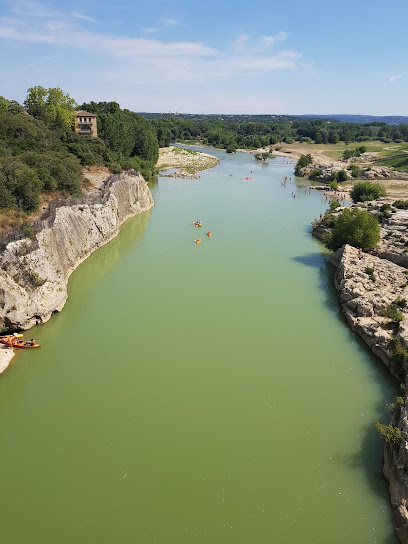
Ornithological Park of Pont de Gau
Discover the Camargue's avian wonders at this renowned ornithological park, home to flamingos, herons, and diverse bird species in a natural wetland setting.
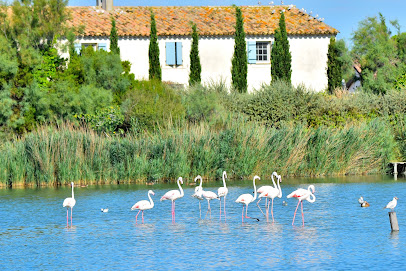
Port Camargue
Explore Europe's largest marina in Le Grau-du-Roi: nautical paradise, gateway to the Camargue, and a blend of relaxation and adventure.
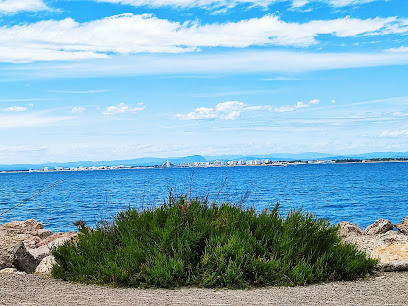
Salin d’Aigues-Mortes
Discover the pink salt flats of Aigues-Mortes: a unique landscape where salt production meets stunning natural beauty and wildlife.
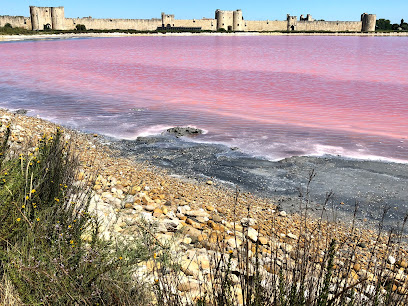
Carbonniere Tower
Explore the medieval Carbonniere Tower in Saint-Laurent-d'Aigouze, offering panoramic views of the Camargue's stunning natural landscape and rich history.
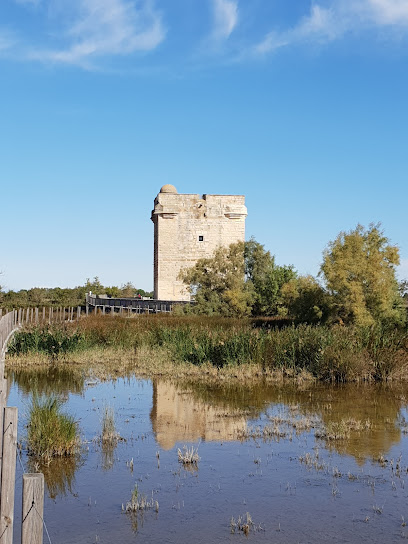
Salt Pan Observation mound
Witness the stunning pink salt flats of Camargue from this easily accessible observation point near Arles, a haven for nature and photography enthusiasts.
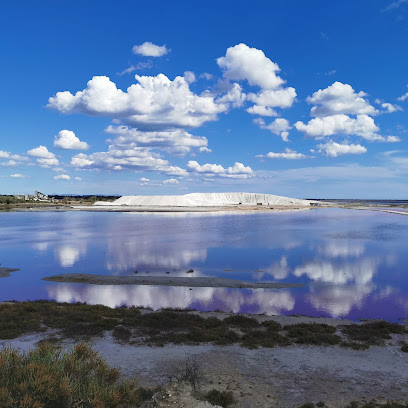
Tiki III
Discover the Camargue's untamed beauty on a traditional Tiki III cruise, offering unique views of wildlife and landscapes along the Petit Rhône.
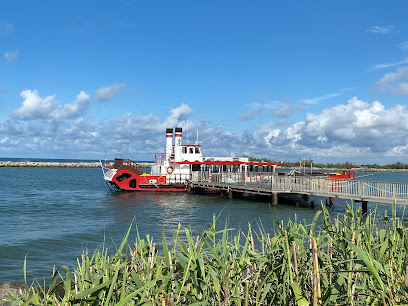
Thermae of Constantine
Explore the partially restored 4th-century Roman baths of Emperor Constantine in Arles, a UNESCO World Heritage Site, and discover ancient bathing culture.
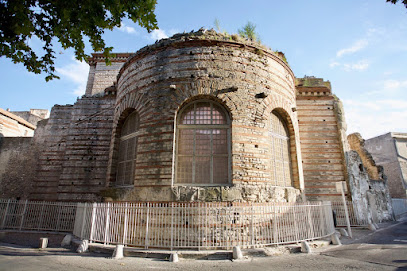
Marshes Nature Reserve Vigueirat
Discover the wild beauty of Camargue at Marshes Nature Reserve Vigueirat: a haven for birdwatching, hiking, and nature exploration.
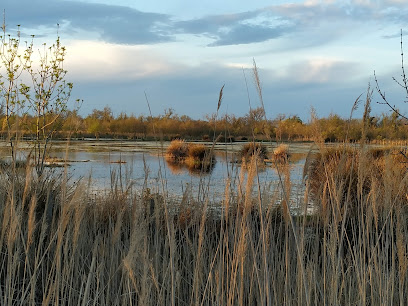
Promenade à cheval Chez Elise
Explore the Camargue's untamed beauty on horseback with guided tours for all skill levels. Discover diverse wildlife and stunning landscapes.
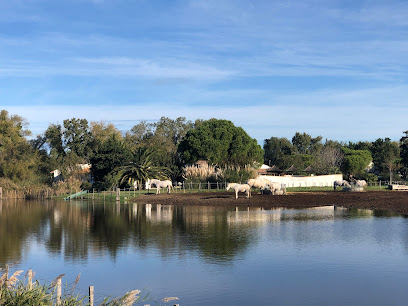
Patio de Camargue
Experience the heart of Gypsy culture in Arles at Patio de Camargue, an event venue with music, dance, and Camargue spirit.
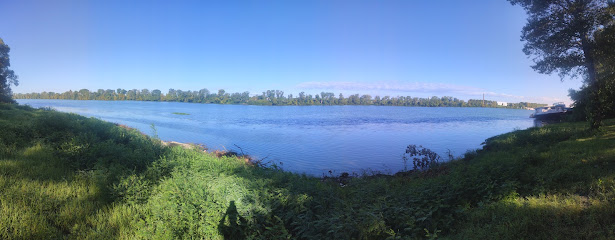
Lighthouse Gacholle
Discover the Gacholle Lighthouse in Camargue: a historic beacon offering stunning views and a glimpse into the region's natural beauty.
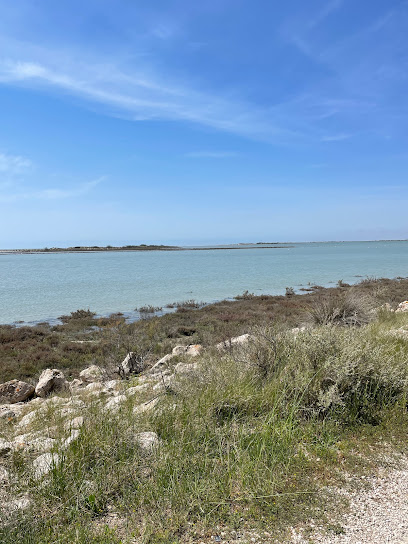
Musée de la Camargue
Explore the rich history of the Camargue at the Musée de la Camargue, where captivating exhibits meet stunning natural landscapes.
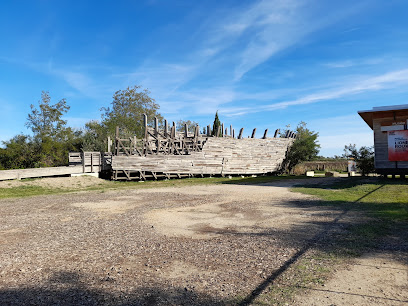
Domaine de la Palissade
Explore the untamed beauty of the Rhône delta at this protected natural area in the Camargue Regional Natural Park near Salin-de-Giraud.
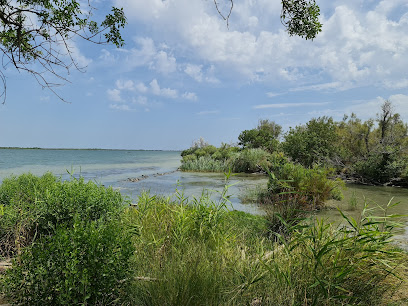
Château d'Avignon
Discover Château d'Avignon: A historic Camargue castle blending heritage, art, and nature in Saintes-Maries-de-la-Mer.
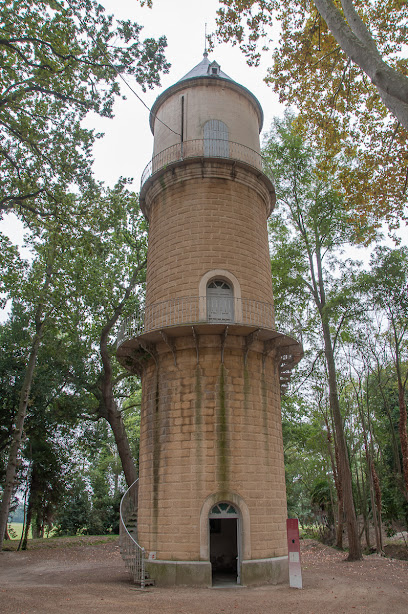
Essential places to dine
La Manade des Baumelles
Experience authentic French cuisine and serene lodgings at La Manade des Baumelles in Saintes-Maries-de-la-Mer.
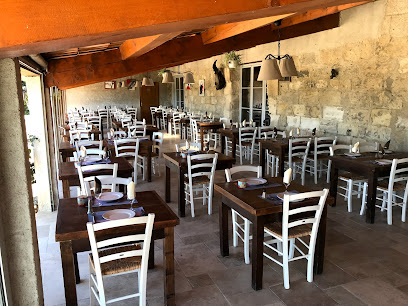
La Playa ... en Camargue
Experience fresh seafood delights at La Playa en Camargue - where every meal is paired with stunning coastal views.
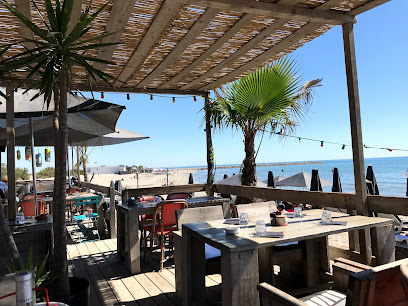
Horn's
Discover Horn's in Le Grau-du-Roi for exquisite French cuisine and gourmet burgers against stunning waterfront views.
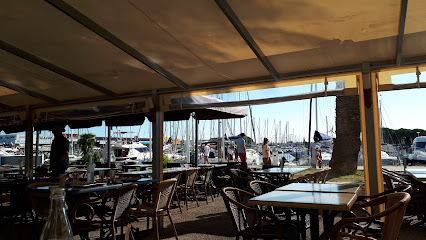
L' Amarette
Discover exquisite seafood at L'Amarette in Le Grau-du-Roi - where Mediterranean flavors meet French culinary traditions.
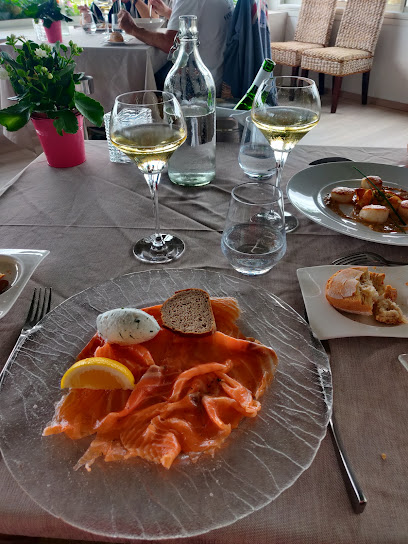
Restaurant Chante Clair
Experience exquisite French and Mediterranean cuisine at Restaurant Chante Clair in beautiful Saintes-Maries-de-la-Mer.
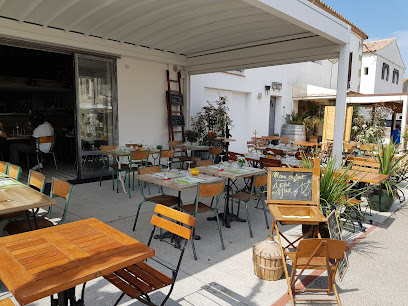
Le Cook's cafe
Experience authentic French and Mediterranean cuisine at Le Cook's Cafe in Le Grau-du-Roi with stunning views and delightful dishes.
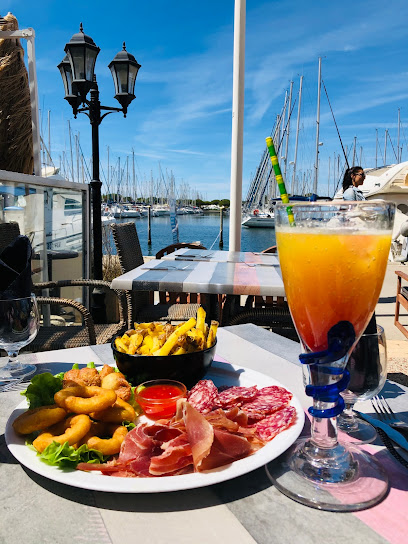
Le Resto du Paty / Les Maisons du Paty (Gîtes)
Experience authentic French cuisine at Le Resto du Paty in Arles - where culinary artistry meets warm hospitality.
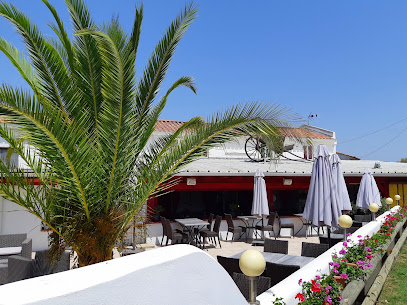
A Fleur de Sel
Discover exquisite Mediterranean flavors at A Fleur de Sel in Saintes-Maries-de-la-Mer—where tradition meets culinary excellence.
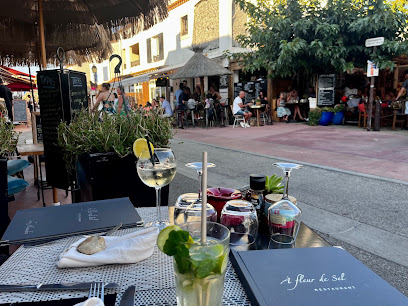
La Pergula
Experience exquisite Mediterranean dining at La Pergula in Arles – where fresh ingredients meet elegant French cuisine.
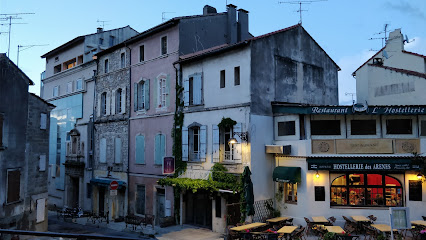
La Cabanette du Sauvage
Experience exquisite French cuisine at La Cabanette du Sauvage in Saintes-Maries-de-la-Mer, where every dish tells a story.
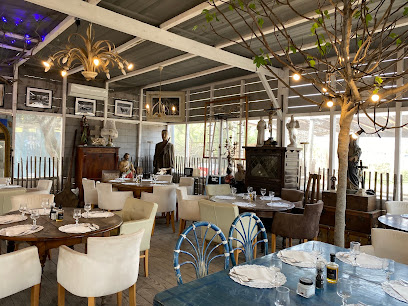
Restaurant Le Flamant Rose
Experience exquisite French cuisine at Restaurant Le Flamant Rose in L'Albaron - where tradition meets innovation in every dish.

Restaurant La Grange
Experience authentic French cuisine at Restaurant La Grange in Saintes-Maries-de-la-Mer; a culinary delight awaits you!
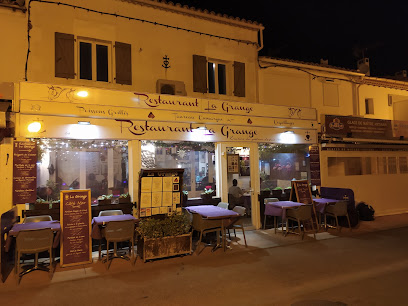
Restaurant Andaluz
Experience the fusion of French and Mediterranean cuisine at Restaurant Andaluz in Saintes-Maries-de-la-Mer.
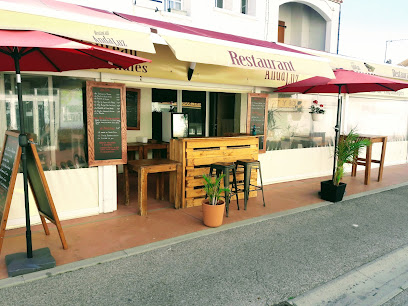
Aux Délices de la Mer
Discover fresh Mediterranean seafood at Aux Délices de la Mer in Le Grau-du-Roi—where every bite transports you to the heart of coastal France.
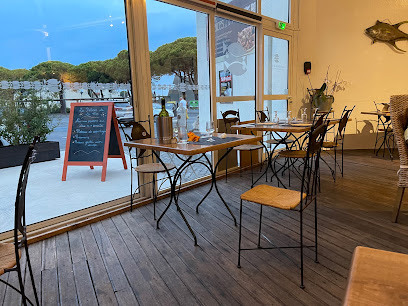
Lou Gabian
Experience authentic French cuisine at Lou Gabian in Saintes-Maries-de-la-Mer - where every dish tells a story.
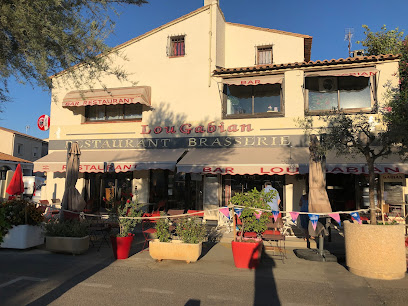
Markets, malls and hidden boutiques
Shopping Promenade Arles
Explore Shopping Promenade Arles: A dynamic retail destination offering fashion, dining, and fun for the whole family.
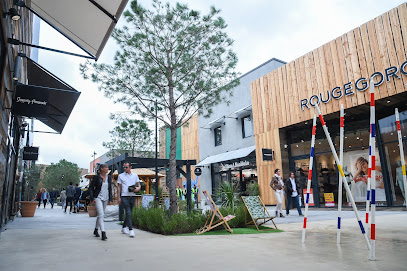
Le Petit Marche de Camargue Depuis 1998 Produits régionaux
Explore local flavors at Le Petit Marche de Camargue, a gourmet grocery store in Saintes-Maries-de-la-Mer, offering exquisite regional products.
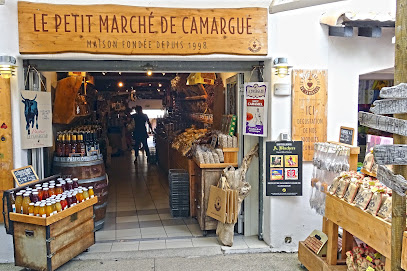
Le Gardian
Discover Le Gardian, the ultimate shoe and clothing boutique in Saintes-Maries-de-la-Mer, where style meets the charm of coastal living.
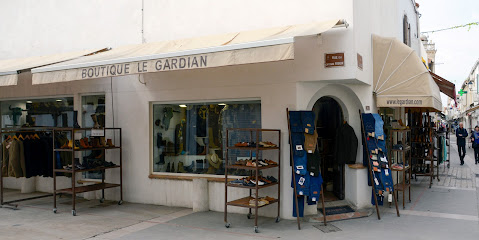
Marina Couture - Nine de Camargue
Explore bespoke fashion at Marina Couture in Saint-Gilles, where skilled craftsmanship meets personalized style in a charming atmosphere.
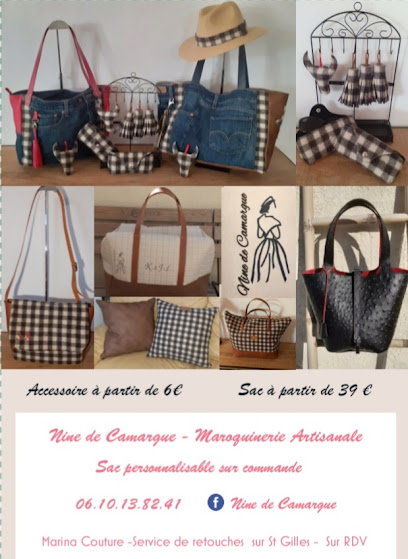
Marionnaud - Parfumerie & Institut
Explore Marionnaud in Arles for luxurious perfumes and expert beauty treatments - a must-visit for beauty enthusiasts.
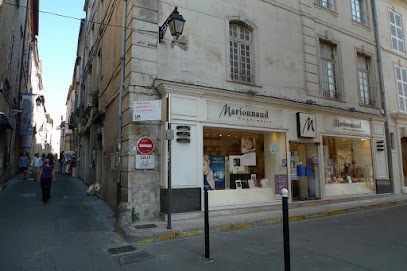
Missa slow concept store
Explore Missa Slow Concept Store in Arles for unique gifts and home goods reflecting the essence of local craftsmanship and slow living.
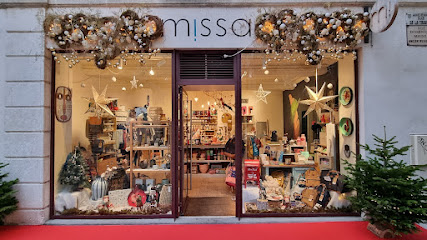
Mas neuf de la Motte
Explore the organic delights at Mas Neuf de la Motte, a must-visit food store in Arles, offering fresh produce and local delicacies.
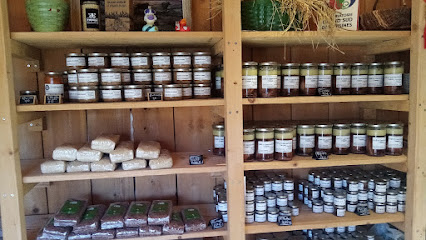
Tout pour le Gardian
Explore unique clothing and accessories at Tout pour le Gardian, the must-visit clothing store in Saintes-Maries-de-la-Mer, blending style and local culture.
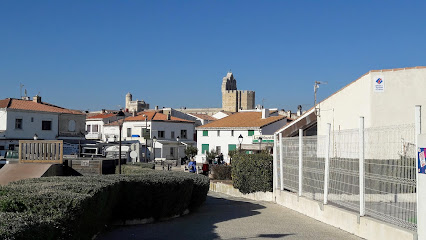
La Boutique De L'Olivier Souvenir
Explore La Boutique De L'Olivier Souvenir for exquisite gift baskets that capture the heart of Provence in the historic city of Arles.
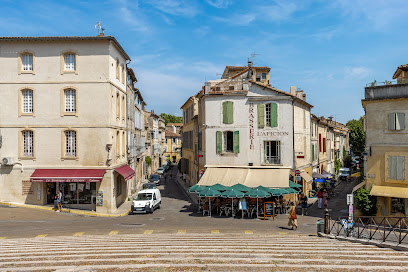
La Provencale
Explore the rich flavors of Provence at La Provencale, a charming grocery store in the heart of Arles, perfect for food lovers and tourists alike.
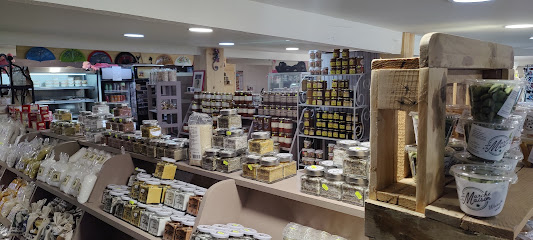
Blad de Lune
Discover unique souvenirs and local crafts at Blad de Lune, the charming gift shop in Saintes-Maries-de-la-Mer that captures the essence of your travels.
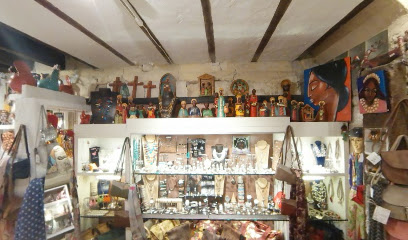
Le Château du Bois Producteur de Lavande Fine - Arles
Explore the aromatic wonders of Le Château du Bois in Arles, where exquisite lavender products capture the essence of Provence.
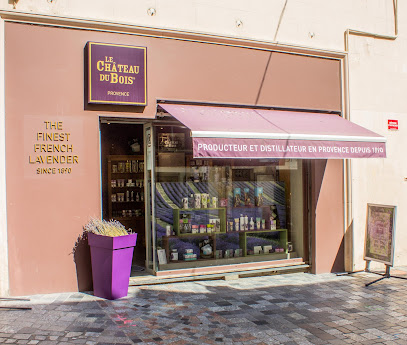
Camargue Relais
Experience the local flavors and culinary delights at Camargue Relais in Arles, where fresh produce and regional specialties await your discovery.
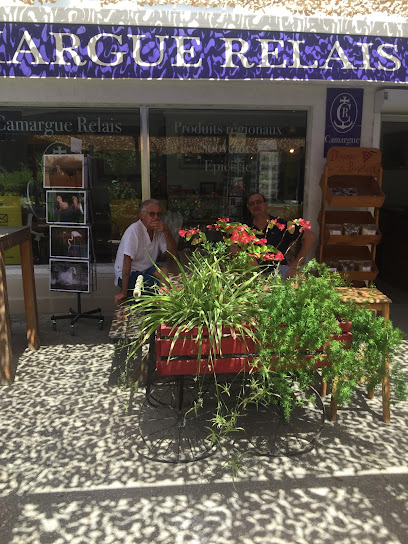
LBDDDéstock
Explore LBDDDéstock, a charming clothing store offering unique apparel, exquisite jewelry, and enchanting perfumes for every fashion enthusiast.

La Boutique Terre de Camargue
Experience the authentic tastes of Camargue at La Boutique Terre de Camargue, a must-visit grocery store in Arles for every food lover.
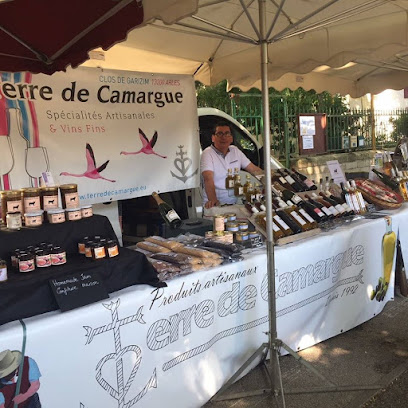
Essential bars & hidden hideouts
Paddy Mullin's - Irish Pub
Discover the vibrant atmosphere and authentic flavors of Ireland at Paddy Mullin's Irish Pub in Arles, France.
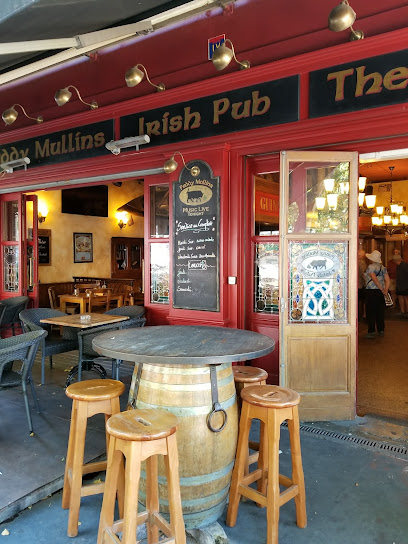
Bar Le Perroquet
Experience the vibrant atmosphere of Bar Le Perroquet in Aigues-Mortes, a cozy bar perfect for unwinding and enjoying local drinks.
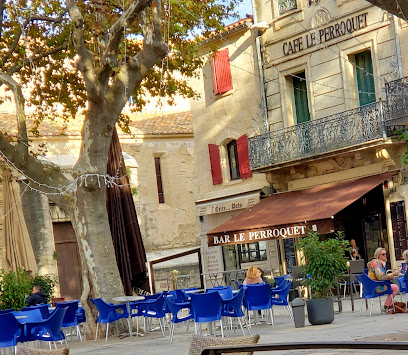
BAM BAR MUSIC
Discover the lively ambiance of Bam Bar Music in Aigues-Mortes, where great drinks and live music create unforgettable nights.
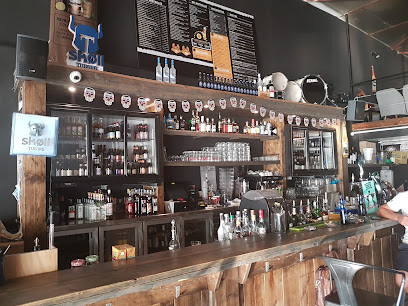
Bar du Marché Arles
Discover the vibrant flavors of Arles at Bar du Marché, a charming café serving authentic French cuisine in a welcoming atmosphere.
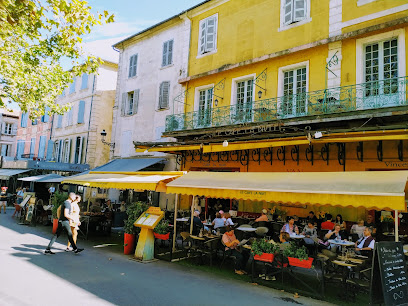
L'instant bar musical
Experience the vibrant nightlife at L'instant bar musical in Aigues-Mortes, where live music and affordable drinks create a perfect evening escape.
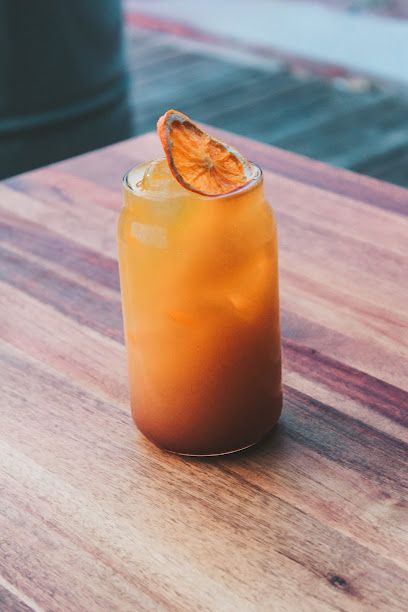
Bar Le Tambourin
Discover the lively Bar Le Tambourin in Arles, where French cuisine meets casual dining in a vibrant atmosphere, perfect for tourists and locals alike.
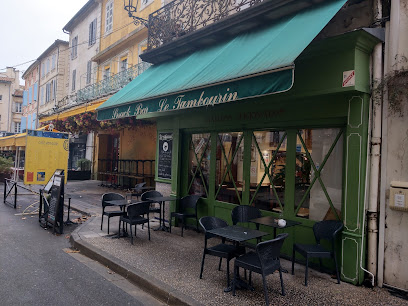
Le Buste et l'oreille - Bar à vin et Librairie
Discover the perfect blend of exquisite wines and literary treasures at Le Buste et l'oreille in Arles.
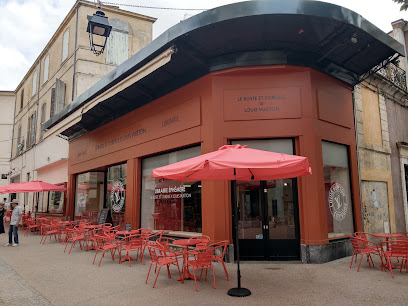
Le Pot A Tabac
Discover the charm of Le Pot A Tabac, a vibrant bar in Arles perfect for enjoying local drinks and a cozy atmosphere.
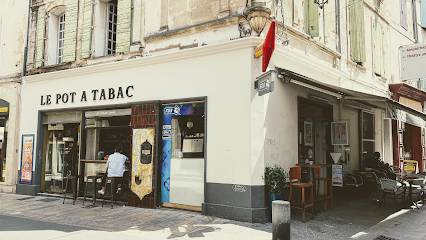
Civette Portagnel
Experience the vibrant atmosphere and local charm at Civette Portagnel, a must-visit bar in Arles, France.
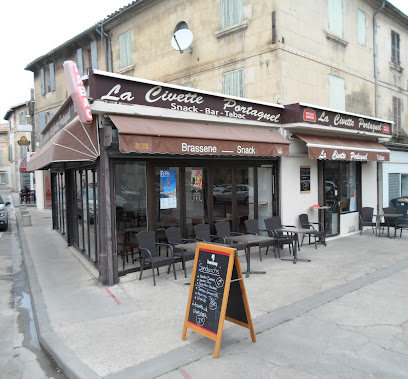
L' Antidote
Discover the charm of L'Antidote in Arles, where exquisite cocktails and a vibrant atmosphere create an unforgettable experience.
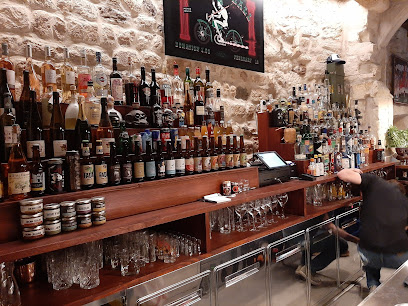
La Bogeda Kaluha
Experience the vibrant atmosphere at La Bogeda Kaluha, a lively bar in Saintes-Maries-de-la-Mer, perfect for drinks and local culture.
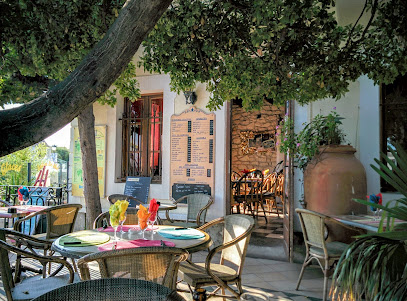
La Caye
Experience the vibrant fusion of Latin flavors and exquisite cocktails at La Caye, the heart of Arles' nightlife.
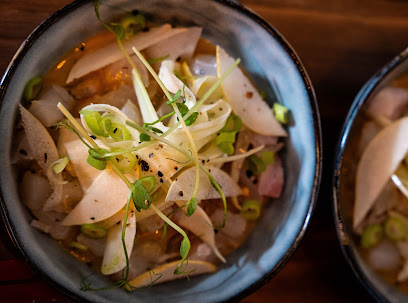
MOMA Dancing Bar
Discover the vibrant nightlife at MOMA Dancing Bar in Arles, offering exquisite cocktails and a lively atmosphere for an unforgettable night out.
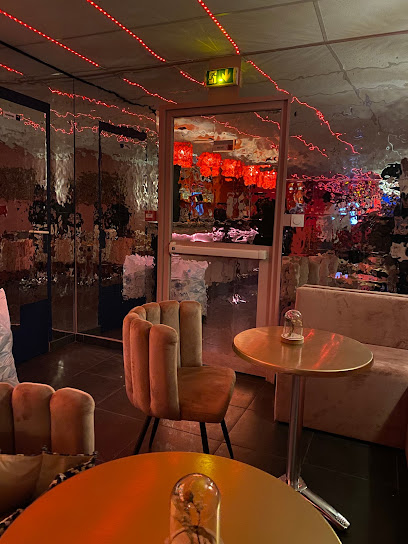
Tio en camargue
Experience the vibrant charm of Tio en Camargue, a seaside bar in Le Grau-du-Roi, where refreshing drinks and stunning views await.
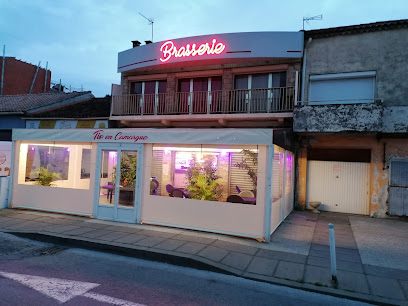
Local Phrases about Camargue
-
- HelloSalut
[sah-LOO] - GoodbyeAu revoir
[oh ruh-VWAHR] - YesOui
[wee] - NoNon
[nohn] - Please/You're welcomeS'il vous plaît / De rien
[seel voo PLEH / duh ree-EHN] - Thank youMerci
[mehr-SEE] - Excuse me/SorryExcusez-moi / Désolé
[ehk-SKEW-zay MWAH / day-zoh-LAY] - How are you?Comment ça va?
[koh-mahn sah vah] - Fine. And you?Bien. Et vous?
[byen. eh voo] - Do you speak English?Parlez-vous anglais?
[par-LAY voo ahn-GLAY] - I don't understandJe ne comprends pas
[zhuh nuh kohm-PRAHN pah]
- HelloSalut
-
- I'd like to see the menu, pleaseJe voudrais voir la carte, s'il vous plaît
[zhuh voo-DREH vwar lah kahrt, seel voo PLEH] - I don't eat meatJe ne mange pas de viande
[zhuh nuh mahnj pah duh vyand] - Cheers!Santé!
[sahn-TAY] - I would like to pay, pleaseJe voudrais payer, s'il vous plaît
[zhuh voo-DREH pay-YAY, seel voo PLEH]
- I'd like to see the menu, pleaseJe voudrais voir la carte, s'il vous plaît
-
- Help!Au secours!
[oh seh-KOOR] - Go away!Allez-vous en!
[ah-lay voo zahn] - Call the Police!Appelez la police!
[ah-pay-LAY lah poh-LEES] - Call a doctor!Appelez un médecin!
[ah-pay-LAY uh mayd-SAN] - I'm lostJe suis perdu
[zhuh swee pair-DUU] - I'm illJe suis malade
[zhuh swee mah-LAHD]
- Help!Au secours!
-
- I'd like to buy...Je voudrais acheter...
[zhuh voo-DREH ah-SHAY-shay] - I'm just lookingJe regarde juste
[zhuh ruh-GAHRD zhewst] - How much is it?Combien ça coûte?
[kohm-BYAN sah koot] - That's too expensiveC'est trop cher
[say troh shair] - Can you lower the price?Pouvez-vous baisser le prix?
[poo-vay voo beh-SAY luh pree]
- I'd like to buy...Je voudrais acheter...
-
- What time is it?Quelle heure est-il?
[kel er ay-teel] - It's one o'clockIl est une heure
[eel ay tun air] - Half past (10)Dix et demi
[dees ay duh-mee] - MorningMatin
[mah-TAN] - AfternoonAprès-midi
[ah-PRAY-mee-dee] - EveningSoir
[SWAHR] - YesterdayHier
[YAYR] - TodayAujourd'hui
[oh-zhoor-DWEE] - TomorrowDemain
[duh-MAN] - 1Un
[uhn] - 2Deux
[duh] - 3Trois
[twa] - 4Quatre
[kat] - 5Cinq
[sank] - 6Six
[sees] - 7Sept
[set] - 8Huit
[weet] - 9Neuf
[nuff] - 10Dix
[dees]
- What time is it?Quelle heure est-il?
-
- Where's a/the...?Où est...?
[oo eh...] - What's the address?Quelle est l'adresse?
[kel ay lah-dress] - Can you show me (on the map)?Pouvez-vous me montrer (sur la carte)?
[poo-vay voo muh mohn-TRAY (soor lah kahrt)] - When's the next (bus)?Quand est le prochain (bus)?
[kahnd ay luh proh-SHAN (boos)] - A ticket (to ....)Un billet (pour ....)
[uhn bee-YAY (poor)]
- Where's a/the...?Où est...?
History of Camargue
-
Camargue’s history stretches back to ancient times, with evidence of human settlement as far back as the Iron Age. The area was influenced by Greek and Roman civilizations, who left behind artifacts and ruins that still intrigue historians today. The ancient Greek city of Massalia, now modern-day Marseille, traded extensively with Camargue, bringing cultural and economic exchanges that shaped the region.
-
During the medieval period, the Camargue region became a strategic location due to its proximity to the city of Arles. The Rhône River played a significant role in trade and transportation, making Arles an important hub. The Knights Templar and later the Knights of Saint John established commanderies in the region, contributing to its military and religious significance.
-
From the Middle Ages to the 19th century, the salt industry became a cornerstone of Camargue's economy. The vast salt flats, or salins, were meticulously managed to extract sea salt, which was a valuable commodity. The historic salt pans of Salin-de-Giraud and Aigues-Mortes are testaments to this thriving industry that left an indelible mark on the region’s development.
-
Every year in May, thousands of Romani people (Gypsies) from all over Europe gather in the town of Saintes-Maries-de-la-Mer to honor their patron saint, Saint Sara. This vibrant and colorful event is steeped in tradition and folklore, featuring religious ceremonies, music, and dance. The pilgrimage has been an integral part of Camargue's cultural heritage for centuries.
-
In 1970, the Camargue was designated as a Regional Natural Park to protect its unique and diverse ecosystems. The park encompasses wetlands, salt flats, and sand dunes, and is home to a wide variety of wildlife, including the iconic Camargue horses and flamingos. This designation has helped preserve the natural beauty and biodiversity of the region, making it a haven for nature enthusiasts.
-
Camargue is a melting pot of cultural influences, particularly Provençal culture. The region's cuisine, language, and traditions reflect a blend of Mediterranean and rural French elements. Festivals such as the Fête de la Saint-Louis in Aigues-Mortes celebrate this rich cultural tapestry, showcasing traditional music, dance, and crafts.
-
Modern agriculture in Camargue has evolved but remains deeply rooted in tradition. The region is famous for its rice paddies, which were introduced in the 19th century to combat soil salinity. Today, Camargue rice is renowned for its quality and forms an essential part of the local economy. Additionally, the cultivation of vineyards and olive groves continues to thrive, contributing to the region's gastronomic reputation.
Camargue Essentials
-
Camargue is located in the southern region of France, within the Provence-Alpes-Côte d'Azur area. The nearest international airport is Marseille Provence Airport (MRS), which is about 90 kilometers away. From the airport, you can rent a car or take a train to Arles, one of the major gateway cities to Camargue. Alternatively, you can fly into Montpellier-Méditerranée Airport (MPL), located approximately 75 kilometers from Camargue. There are also regular train services from Paris, Lyon, and other major French cities to Arles and Nîmes, from which you can easily reach Camargue.
-
Transportation within Camargue is most convenient by car, allowing you to explore the vast wetlands, beaches, and rural areas at your own pace. Car rentals are available in nearby cities such as Arles and Nîmes. Public transportation options include regional buses that connect major towns, but service can be infrequent. Bicycles are also a popular way to explore the flat landscapes and nature trails. Boat tours offer a unique perspective of the region's waterways and wildlife.
-
The official currency in France is the Euro (€). Credit cards are widely accepted in hotels, restaurants, and shops throughout Camargue, but it is advisable to carry some cash, especially for smaller establishments and rural areas. ATMs are available in towns like Arles and Saintes-Maries-de-la-Mer. It's a good idea to notify your bank of your travel plans to avoid any issues with your cards.
-
Camargue is generally a safe destination for tourists. However, it is always wise to take standard precautions such as avoiding walking alone at night in unfamiliar areas and keeping an eye on your belongings in crowded places. The towns of Arles and Saintes-Maries-de-la-Mer are popular tourist spots and generally safe, but as in any tourist area, remain vigilant against pickpocketing. There are no specific high-crime neighborhoods targeting tourists in Camargue.
-
In case of emergency, dial 112 for immediate assistance, which is the standard emergency number across the European Union. For medical emergencies, there are hospitals and clinics in nearby towns such as Arles and Nîmes. Pharmacies are available for minor health issues and over-the-counter medications. It's recommended to have travel insurance that covers medical emergencies.
-
Fashion: Do wear comfortable and casual clothing suitable for outdoor activities. Light layers are ideal due to the varying temperatures. Avoid overly revealing attire when visiting religious sites. Religion: Do respect local customs and traditions, especially when visiting churches or religious festivals. Public Transport: Do be respectful and considerate of other passengers. Don't eat or drink on public transport. Greetings: Do greet people with a polite 'Bonjour' when entering shops or restaurants. A handshake is common for greetings. Eating & Drinking: Do try local delicacies such as bull meat (taureau) and seafood. Don't refuse food offerings, as it is considered impolite.
-
To experience Camargue like a local, visit the local markets in towns like Arles and Saintes-Maries-de-la-Mer, where you can buy fresh produce and traditional goods. Engage with locals, who are generally friendly and willing to share stories about the region's culture and history. Don't miss the chance to see the famous white horses and pink flamingos of the region. Try to attend a traditional bullfighting event, which is a significant part of local culture. For a unique experience, consider staying in a 'mas', a traditional Provençal farmhouse.
Trending Landmarks in Camargue
-
Camargue Regional Nature Park
-
Ornithological Park of Pont de Gau
-
Port Camargue
-
Salin d’Aigues-Mortes
-
Carbonniere Tower
-
Salt Pan Observation mound
-
Tiki III
-
Thermae of Constantine
-
Marshes Nature Reserve Vigueirat
-
Promenade à cheval Chez Elise
-
Patio de Camargue
-
Lighthouse Gacholle
-
Musée de la Camargue
-
Domaine de la Palissade
-
Château d'Avignon
Nearby Cities to Camargue
-
Things To Do in Montpellier
-
Things To Do in Avignon
-
Things To Do in Aix-en-Provence
-
Things To Do in Marseille
-
Things To Do in Saint-Tropez
-
Things To Do in Grenoble
-
Things To Do in Cannes
-
Things To Do in Girona
-
Things To Do in Nice
-
Things To Do in Les Moneghetti
-
Things To Do in Moneghetti
-
Things To Do in Fontvieille
-
Things To Do in La Condamine
-
Things To Do in Monaco-Ville
-
Things To Do in Monte Carlo











